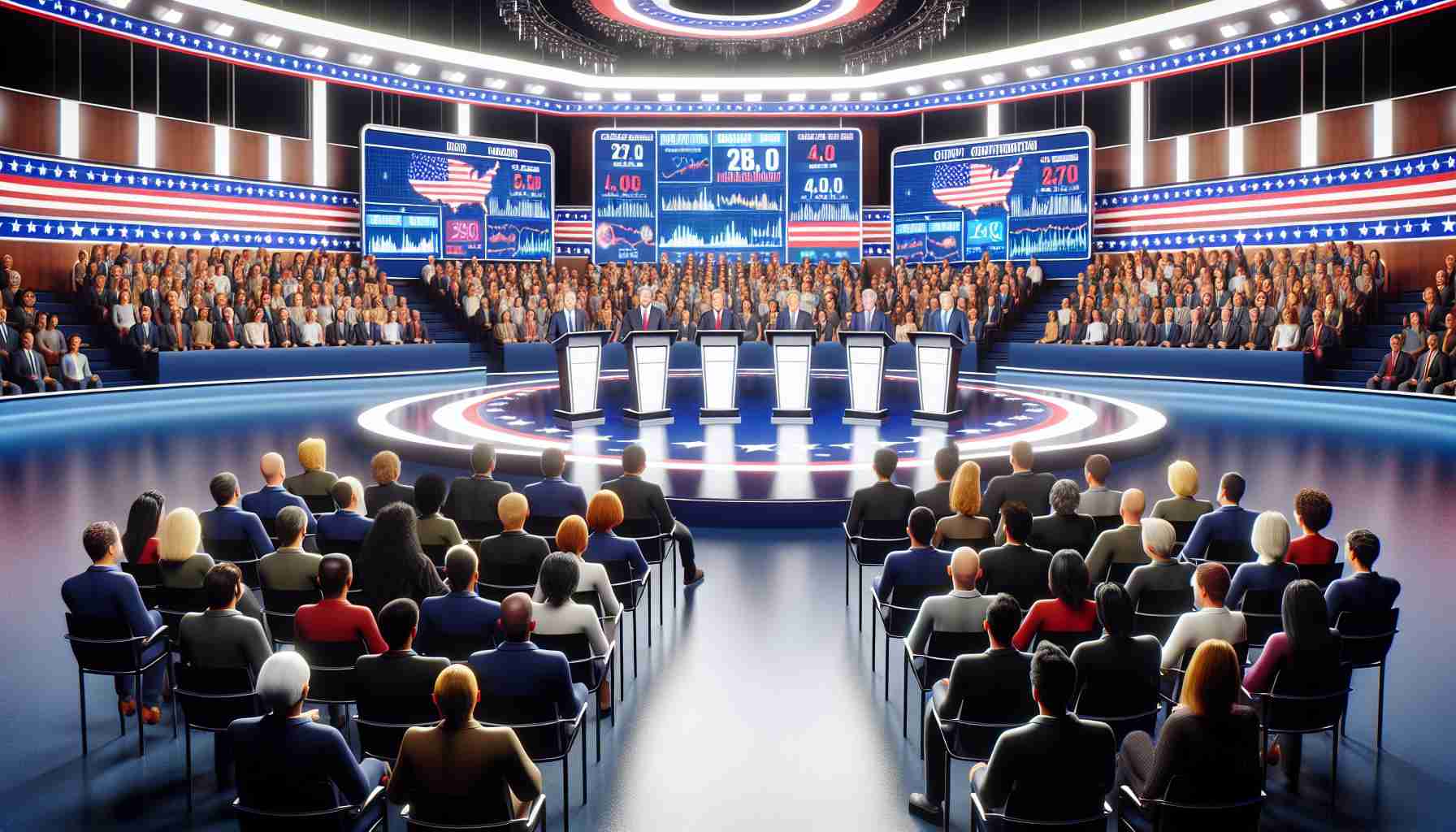The highly-anticipated debate between President Joe Biden and former President Donald Trump holds more at stake than just conventional political issues. Cryptocurrency and its regulatory future may play a pivotal role, capturing the attention of voters with a vested interest in digital assets. Trump, known for his previous skepticism but now hailed as a fervent crypto advocate, may raise the crypto issue, with a significant number of onlookers in the decentralized betting market anticipating a 61% probability that he will discuss Bitcoin or other cryptocurrencies.
Will Trump Push Crypto in the Spotlight? Since vo itself into an enthusiastic supporter, particularly after a recent event promoting his NFT collection where his alignment with crypto was clearly expressed. Trump categorically criticized SEC Chairman Gary Gensler’s apprehensive stance towards cryptocurrencies and has since been vocal about promoting crypto donations and the domestic production of Bitcoin.
Conversely, the Biden administration has had a contentious relationship with the crypto industry, particularly after the meltdown of the FTX exchange. The current administration has faced heat from crypto miners as well, who were targeted with a tax proposal on their energy use, despite the unexpected approval of spot Ethereum ETFs which hinted at possible political interventions.
Regulatory Frameworks Under Debate Despite Biden rejecting legislative attempts to modify guidelines for banks handling digital assets, he signaled a readiness to collaborate on a balanced digital asset regulation framework. Such a move may fortify the U.S. status in global finance, indicating a rare common ground with Trump’s crypto sentiments.
As the debate stage is set, the cryptocurrency community watches closely, ready to gauge how their interests will be represented and defended in the ongoing battle between regulation and innovation.
The Significance of Cryptocurrencies in the Presidential Debate
The upcoming presidential debate’s discussion on cryptocurrencies goes beyond mere technicalities of digital assets—it’s a reflection of each candidate’s outlook on innovation, financial sovereignty, and regulatory approaches. This dialogue is significant for the crypto community, which seeks clarity on the future legal landscape of digital currencies in the U.S. Furthermore, it could influence investors, tech companies, and everyday users who are part of the growing crypto economy.
Key Questions Surrounding the Debate
– How will each candidate’s stance affect U.S. leadership in the global crypto industry?
– What are the proposed regulatory frameworks, and how do they intend to protect investors while fostering innovation?
– How do the candidates plan to address concerns related to energy consumption by crypto mining?
– In what ways might cryptocurrency policies impact the broader economy, including taxation and job creation?
Challenges and Controversies
Regulation remains a contentious issue, balancing consumer protection with the need for innovation. Energy consumption for mining activities has been critiqued from environmental perspectives, prompting debates about sustainable practices. Additionally, the fallout from the FTX exchange collapse raised questions about market stability and the effectiveness of current regulatory measures.
Advantages and Disadvantages
One advantage of a robust regulatory framework is the potential for increased investor trust and the legitimization of cryptocurrencies as a safe investment option. However, overregulation could stifle innovation and push crypto entrepreneurs to more friendly jurisdictions.
If you are looking to further explore the domain of cryptocurrency and its intersection with politics, feel free to visit the main domain of the U.S. Securities and Exchange Commission for regulatory updates at SEC or the White House’s official website at White House for potential policy announcements. These links are current and valid to the best of my knowledge as of the last update.



